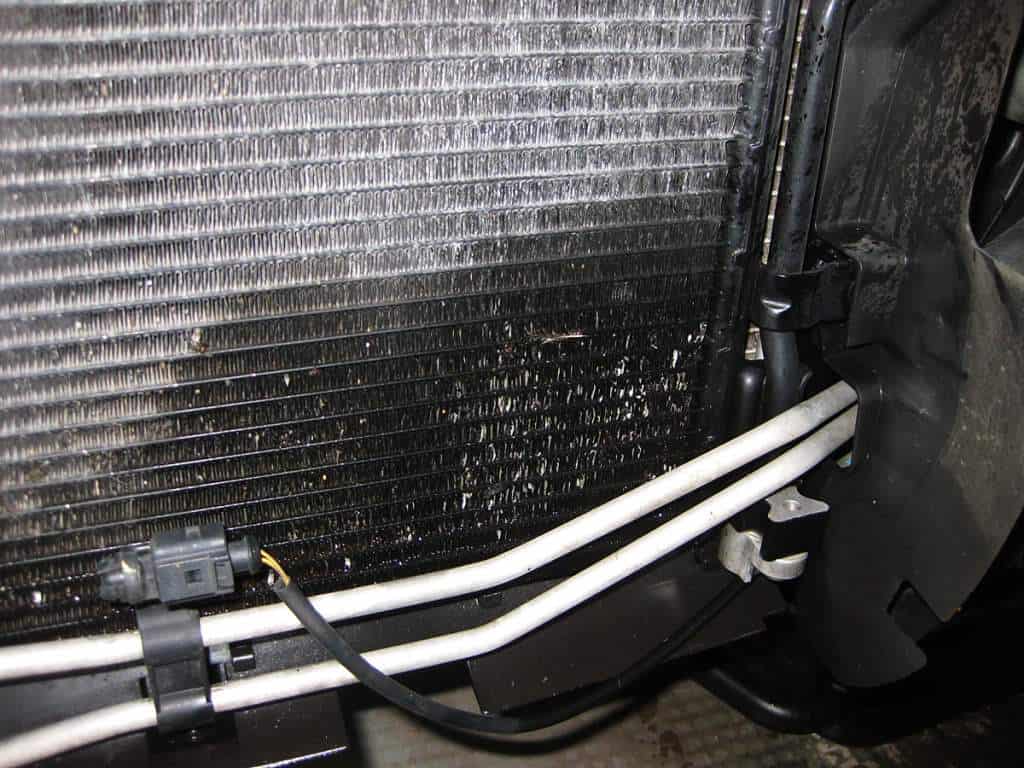In a city of extreme temperatures like Chicago, your vehicle’s cooling system is its unsung hero. It battles traffic jams on a 95-degree summer day and protects your engine block from cracking during a sub-zero polar vortex. When that system fails, the consequences are immediate and severe. A temperature gauge spiking into the red isn’t just an inconvenience; it’s your engine’s last cry for help before catastrophic damage occurs.
At Triangle Auto Repair & Service, our name tells our story. We began as radiator specialists, and that core expertise remains at the heart of our business today. We are the trusted choice for radiator repair in Chicago because this isn’t just one of our services—it’s our heritage. For an expert diagnosis of your cooling system from our team in Old Irving Park, call the name that says it all: (773) 539-5858.

Warning Signs of a Failing Cooling System
Your cooling system will almost always give you clear signals when it’s in trouble. Acting on these signs immediately is the key to preventing a simple leak from turning into a multi-thousand-dollar engine replacement. Look out for these red flags:
- A High-Reading Temperature Gauge: If your car’s temperature gauge is climbing into the red or is significantly higher than normal, your engine is overheating.
- Steam or “Smoke” from the Hood: This is a sign that coolant has become superheated and is boiling out of the system through a weak point like a crack or a loose cap.
- Visible Puddles of Fluid: Coolant (or antifreeze) is typically bright green, pink, or orange. Puddles of this fluid under your car are a sure sign of a leak.
- A Sweet, Syrupy Smell: Leaking antifreeze has a distinct sweet odor. If you smell this around your car, especially after it’s been running, there is likely a leak.
Our Comprehensive Radiator and Cooling System Services
As Chicago’s premier radiator shop, we offer a full spectrum of services to keep your engine running at the perfect temperature. We handle every component of this critical system with specialized knowledge.
Advanced Leak Detection and Pressure Testing
We don’t guess where a leak is coming from. We use professional pressure testing equipment to safely pressurize the cooling system, making even the tiniest pinhole leaks in hoses, gaskets, or the radiator itself easy to find.
Radiator Repair & Replacement
Depending on the damage, we can sometimes perform a durable radiator repair. When a replacement is needed, we use high-quality radiators that are designed for maximum cooling efficiency and longevity.
Water Pump and Thermostat Replacement
The water pump is the heart of the system, circulating coolant, while the thermostat is the brain, regulating temperature. We diagnose and replace these vital components to prevent system failure.
Preventative Coolant Flush Service
Over time, coolant becomes acidic and filled with contaminants. Our complete coolant flush service removes all the old fluid and debris, refilling the system with the precise type of antifreeze required by your vehicle’s manufacturer to protect all internal components.
Is your car overheating? Don’t risk permanent engine damage. Call Chicago’s cooling system specialists at Triangle Radiator & Service now at (773) 539-5858.
Why Triangle Radiator is the Name to Trust
In a city with countless repair shops, there’s only one that has made cooling systems its legacy. Our deep-rooted expertise translates into a better, more reliable service for you.
- Our Name Says It All: We started as radiator experts, and that focus has never wavered. We have decades of specialized experience that general repair shops can’t match.
- Protecting Your Engine is Our #1 Goal: We understand that every cooling system repair is an investment in preventing much more expensive and catastrophic engine damage.
- The Correct Coolant, Every Time: Modern vehicles require very specific types of coolant. Using the wrong kind can cause corrosion and damage. We ensure your car gets the exact fluid it needs for long-term protection.
Frequently Asked Questions about Cooling Systems
How often should I get a coolant flush?
Most vehicle manufacturers recommend a coolant flush every 30,000 to 50,000 miles, or about every 3 to 5 years. This preventative maintenance is one of the best investments you can make in your engine’s health. We can check your vehicle’s specific requirements.
My car is overheating. What should I do right now?
If you see the temperature gauge in the red or steam from the hood, pull over to a safe location and turn off the engine immediately. Do not attempt to open the radiator cap, as the system is under extreme pressure and can cause severe burns. Call for roadside assistance to have your vehicle towed to our shop.
What is a thermostat and what does it do?
The thermostat is a small, temperature-sensitive valve that controls the flow of coolant into the engine. It remains closed when the engine is cold to help it warm up quickly and opens when the engine reaches operating temperature to allow coolant to circulate and prevent overheating. A stuck thermostat (either open or closed) can cause significant problems. To learn more, read about keeping your vehicle’s cooling system in shape from the U.S. Dept. of Energy. Then schedule a cooling system inspection with our specialists.

